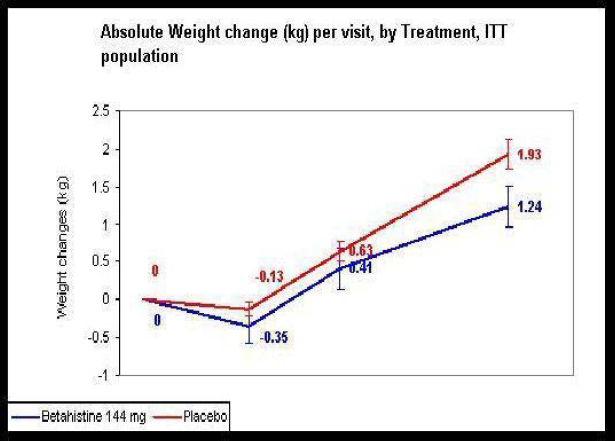Volume 25 - 2010
Psychopharmacological treatment and biological therapies
PW01-261 - Betahistine (HistaleantTM) Safely Mitigates Olanzapine Induced Weight Gain
-
- Published online by Cambridge University Press:
- 17 April 2020, 25-E1574
-
- Article
-
- You have access
- Export citation
PW01-262 - Influence Of Age On Effectiveness And Tolerability Of Electroconvulsive Therapy
-
- Published online by Cambridge University Press:
- 17 April 2020, 25-E1575
-
- Article
-
- You have access
- Export citation
PW01-263 - Galantamine Compared To Risperidone In Neuropsychiatric And Behavioural Symptoms In Alzheimer Patients: A One-Center Clinical Trial In 100 Patients
-
- Published online by Cambridge University Press:
- 17 April 2020, 25-E1576
-
- Article
-
- You have access
- Export citation
PW01-264 - How Would European Trainees Treat Bipolar Disorder For Their Patients And Themselves, And What Influences Decision-Making?
-
- Published online by Cambridge University Press:
- 17 April 2020, 25-E1577
-
- Article
-
- You have access
- Export citation
PW01-265 - Naturalistic Use Of The Coated And Orally Disintegrating Tablets Of Olanzapine In Schizophrenic And Bipolar Outpatients: European Baseline Results
-
- Published online by Cambridge University Press:
- 17 April 2020, 25-E1578
-
- Article
-
- You have access
- Export citation
Psychosomatic disorders/ Eating disorders / Somatoform disorders
PW01-172 - Treatment Effects Of Repetitive Transcranial Magnetic Stimulation (Rtms) On Patients With Chronic Tinnitus Aurium
-
- Published online by Cambridge University Press:
- 17 April 2020, 25-E1579
-
- Article
-
- You have access
- Export citation
PW01-173 - Object Visual Processing In Body Dysmorphic Disorder
-
- Published online by Cambridge University Press:
- 17 April 2020, 25-E1580
-
- Article
-
- You have access
- Export citation
PW01-174 - Impaired Fear Conditioning To Thermal Pain Stimuli In Fibromyalgia Patients - An Experimental Study
-
- Published online by Cambridge University Press:
- 17 April 2020, 25-E1581
-
- Article
-
- You have access
- Export citation
Psychotic disorders / Schizophrenia
PW01-175 - Comparison Of The Quality Of Life Of Patients With Schizophrenia In Urban And Rural Districts
-
- Published online by Cambridge University Press:
- 17 April 2020, 25-E1582
-
- Article
-
- You have access
- Export citation
PW01-176 - Schizotypy Clusters In Nonclinical Individuals
-
- Published online by Cambridge University Press:
- 17 April 2020, 25-E1583
-
- Article
-
- You have access
- Export citation
PW01-177 - Jumping To Conclusions In Psychotic Patients: A Comparison With Siblings And Healthy Controls
-
- Published online by Cambridge University Press:
- 17 April 2020, 25-E1584
-
- Article
-
- You have access
- Export citation
PW01-178 - Effectiveness, Tolerability And Compliance Of Schizophrenic Patients Under Treatment With Oral Atypical Antipsychotics Or Long-Acting Injectable Risperidone In Daily Routine
-
- Published online by Cambridge University Press:
- 17 April 2020, 25-E1585
-
- Article
-
- You have access
- Export citation
PW01-179 - Effect Of Cannabis Misuse On Duration Of Untreated Psychosis And Pathways To Care Of Patients With Schizophrenia
-
- Published online by Cambridge University Press:
- 17 April 2020, 25-E1586
-
- Article
-
- You have access
- Export citation
PW01-180 - Type 2 Diabetes Mellitus Is A Predictor Of Excess Mortality In Schizophrenia: A Naturalistic 7 Year Follow-Up
-
- Published online by Cambridge University Press:
- 17 April 2020, 25-E1587
-
- Article
-
- You have access
- Export citation
PW01-181 - Economic Consequences Of Medication Nonadherence In The Treatment Of Schizophrenia: 36-Month Results From The Soho (Schizophrenia Outpatient Health Outcomes) Study
-
- Published online by Cambridge University Press:
- 17 April 2020, 25-E1588
-
- Article
-
- You have access
- Export citation
PW01-182 - Evidence For Association Of Akt1 Gene Variants With Both Schizophrenia And Bipolar Disorder
-
- Published online by Cambridge University Press:
- 17 April 2020, 25-E1589
-
- Article
-
- You have access
- Export citation
PW01-183 - Relationship Of Personality Disorders To The Symptoms Of Schizophrenia
-
- Published online by Cambridge University Press:
- 17 April 2020, 25-E1590
-
- Article
-
- You have access
- Export citation
PW01-184 - An Overview Of The Demobinc Project And Development Of The Quality Indicator For Rehabilitative Care (Quirc)
-
- Published online by Cambridge University Press:
- 17 April 2020, 25-E1591
-
- Article
-
- You have access
- Export citation
PW01-185 - Genetic Profile Of Schizophrenic Patients In Pakistan
-
- Published online by Cambridge University Press:
- 17 April 2020, 25-E1592
-
- Article
-
- You have access
- Export citation
PW01-186 - Effects Of Longterm Treatment With Atypical Neuroleptics For Patients With Schizophrenia (Elan): Medication Use, Adherence, Functional Impairment, Quality Of Life
-
- Published online by Cambridge University Press:
- 17 April 2020, 25-E1593
-
- Article
-
- You have access
- Export citation

